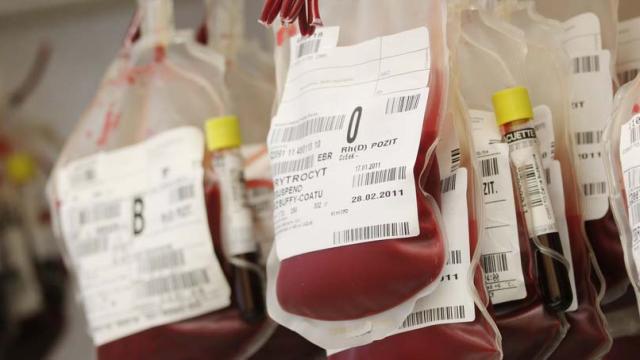If you know anything about blood types, then you know how they add an extra wrinkle to blood donations. Match donor and recipient blood types incorrectly, and you could even kill a patient. That’s why scientists are working on artificially changing donated blood into type O, the universal donor.
In the simplest terms, blood types refer to whether someone an extra sugar molecule bound to the surface of their blood cells. People who are type A have one kind, B another, and AB both. Type O people have neither. That’s why people with type O can essentially donate to anyone.
But scientists have also been tinkering in a lab, and they have found that an enzyme can be used to snip off that extra A or B sugar molecule. Normally, though, that enzyme is not very efficient. In a recent study, scientists were able to tweak the enzyme so it became 170 times more efficient at getting rid of the the extra sugar molecules.
That’s a lot, but it’s still not perfect — even tiny bit of extra A or B sugars could trigger an immune reaction. But if the technology ever does get even better, it could make matching blood or organs donations less complicated.
[J. Am. Chem. Soc. via Popular Science]
Picture: Malota/shutterstock
